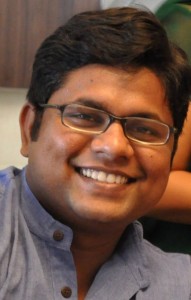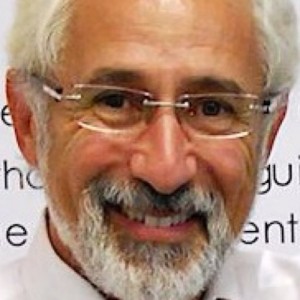22 May, 2013
3 Great Workshops from 3 Continents
The Canadian Evaluation Society’s conference is drawing near and there’s little time left before we all meet in Toronto to network and enjoy the great content that’s lined up. To showcase just how global our event is going to be and how we’re living up to the 2013 theme of Evaluation Across Boundaries, we’ve put together this synopsis of workshops from across the world to whet your appetite:
Using Innovative ICT Tools for Effective Evaluation of Social Impact – Live Demonstration (Africa)
with Valentine J Gandhi and Vida Razawi
 This workshop will introduce you to ICT (Information and Communications Technology) tools and techniques to measure and report project / programme outcomes to your stakeholders (e.g. donors, funders, supervisors or the general public). At the end of the workshop, you will be familiar with the components of an effective monitoring and evaluation plan using ICT, as well as methods and tools to conduct data collection, statistical analysis and reporting.
This workshop will introduce you to ICT (Information and Communications Technology) tools and techniques to measure and report project / programme outcomes to your stakeholders (e.g. donors, funders, supervisors or the general public). At the end of the workshop, you will be familiar with the components of an effective monitoring and evaluation plan using ICT, as well as methods and tools to conduct data collection, statistical analysis and reporting.
Professionals such as Monitoring and Evaluation Officers, Program Officers, Project managers, Research Scholars, Students and any other professionals involved in or interested in learning more about monitoring and evaluation processes will benefit from this course.
Dr Valentine J Gandhi is a development economist and knowledge manager with 11 years of experience in Asia and Africa working both at both the policy and grassroots level. He is the founder of The Development CAFÉ. He also is a consultant for several international donors and UN Agencies on Impact Evaluation and Organizational Capacity Building, Team building and Gender Training. Dr. Ghandi has been described as ‘a citizen of the world’ and is very articulate and generous in sharing his knowledge.
Vida Razawi is a sociologist who integrates ICT-based tools in her research, particularly on activating empathy among school children. She is also editor for an international journal run by DevCAFE called The Development Review.
Empowerment Evaluation (USA)
with David Fetterman
 Empowerment evaluation builds program capacity and fosters program improvement. It teaches people how to help themselves by learning how to evaluate their own programs. The approach is guided by process use – the more that people conduct their own evaluations the more likely they are to find their findings and recommendations credible and the more likely they are to use them. The role of the evaluator is that of a coach or facilitator in an empowerment evaluation. The workshop will also highlight how empowerment evaluation produces measurable outcomes with case studies.
Empowerment evaluation builds program capacity and fosters program improvement. It teaches people how to help themselves by learning how to evaluate their own programs. The approach is guided by process use – the more that people conduct their own evaluations the more likely they are to find their findings and recommendations credible and the more likely they are to use them. The role of the evaluator is that of a coach or facilitator in an empowerment evaluation. The workshop will also highlight how empowerment evaluation produces measurable outcomes with case studies.
Dr. David Fetterman is a past President of the American Evaluation Association and the founder of Empowerment Evaluation. He has provided professional development workshops for over 25 years. Clients include: Stanford University, the Ministry of Education in Japan; Ministry of Health in Brazil; and the US Office of Special Education. Dr. Fetterman has taught or facilitated empowerment evaluation workshops world-wide, ranging from Australia to Japan and Brazil to Israel. He has also successfully taught AEA “coffee breaks” and an eStudy webinar, as well as webinars for UNICEF and Claremont Graduate University. He has also taught at Stanford for over 25 years.
Causal Inference for Qualitative and Mixed Methods (New Zealand)
with E. Jane Davidson
 Many people argue that causal inference simply can’t be done without large-scale quantitative studies, high-powered statistical techniques, and the ability to control the program or intervention. But aren’t there ways to get an approximate answer to the causal question, even using qualitative or mixed method evidence? I think there are – and that’s what this workshop is about.
Many people argue that causal inference simply can’t be done without large-scale quantitative studies, high-powered statistical techniques, and the ability to control the program or intervention. But aren’t there ways to get an approximate answer to the causal question, even using qualitative or mixed method evidence? I think there are – and that’s what this workshop is about.
You will learn eight practical, commonsense strategies to build an evidence base for causal contribution: (1) Ask observers; (2) Match content to outcomes; (3) Modus operandi; (4) Logical timing; (5) Dose-response link; (6) Comparisons; (7) Control variables; (8) Causal mechanisms. You will also learn how a judicious mix of evidence can be woven to build a case for a causal claim – to a level of certainty that makes sense in that context.
Dr. Jane Davidson is internationally recognized for applying critical thinking and evaluative reasoning to evaluation, policy, strategy, and program design. She has delivered workshops at AEA for many years, and they are consistently sold out and rated among the highest each year. She brings a distinctively multidisciplinary and refreshingly practical, plain language approach to her work, which spans education, health, social policy, leadership development, and many other areas.
View the full list of workshops planned for CES Toronto 2013 and make your choice ahead of time. Follow us on LinkedIn, Facebook, Twitter, YouTube and Google+, or subscribe to our bilingual Conference Newsletter.




